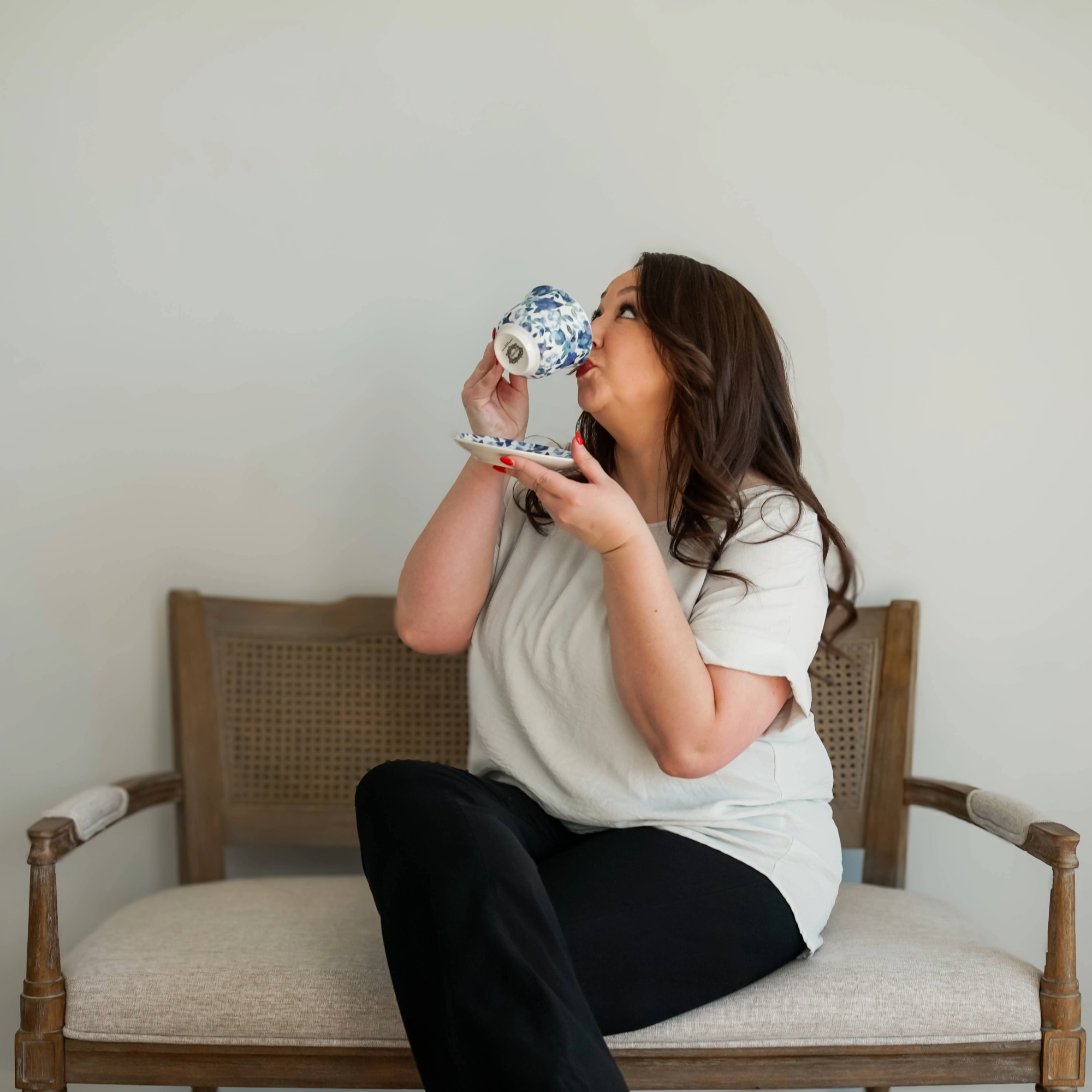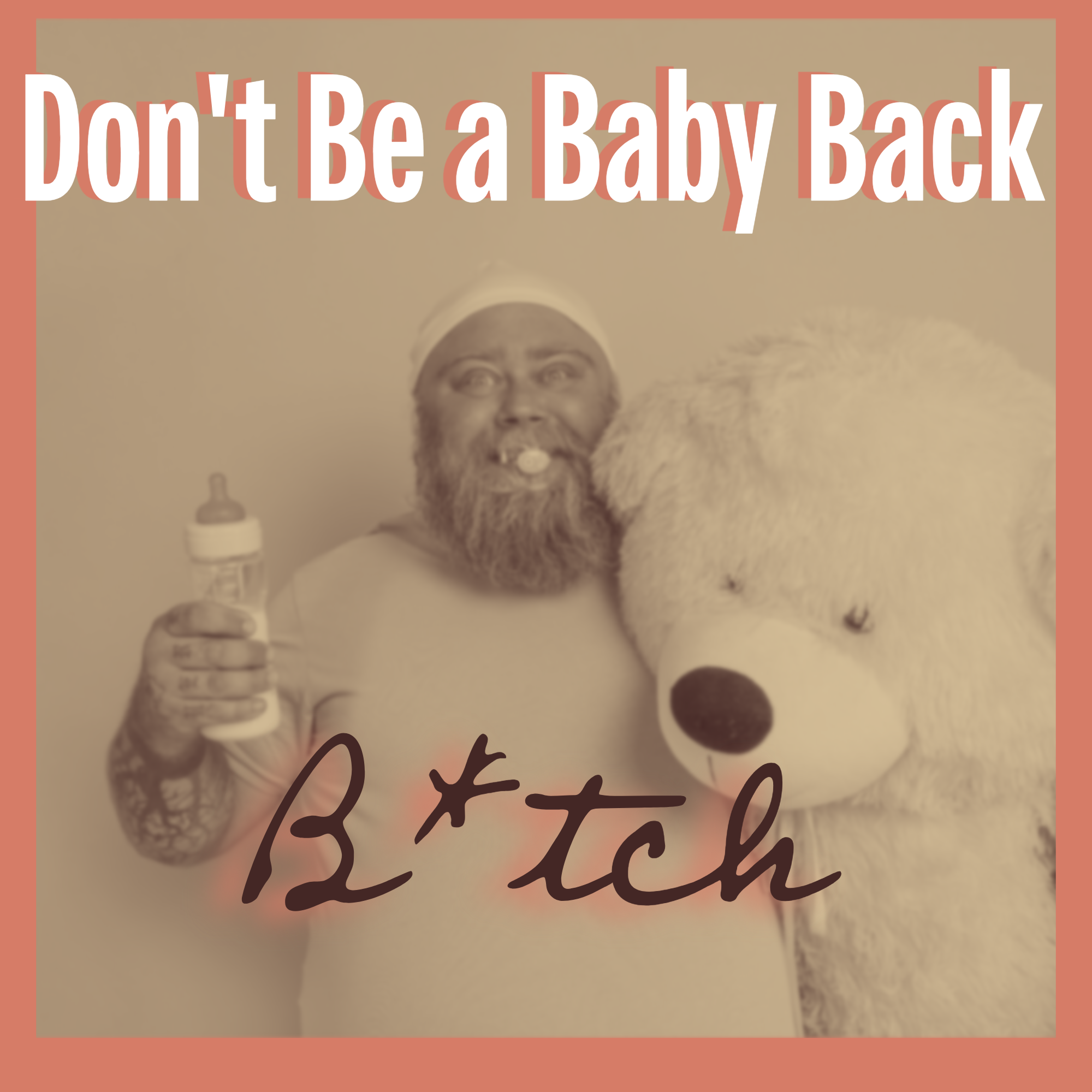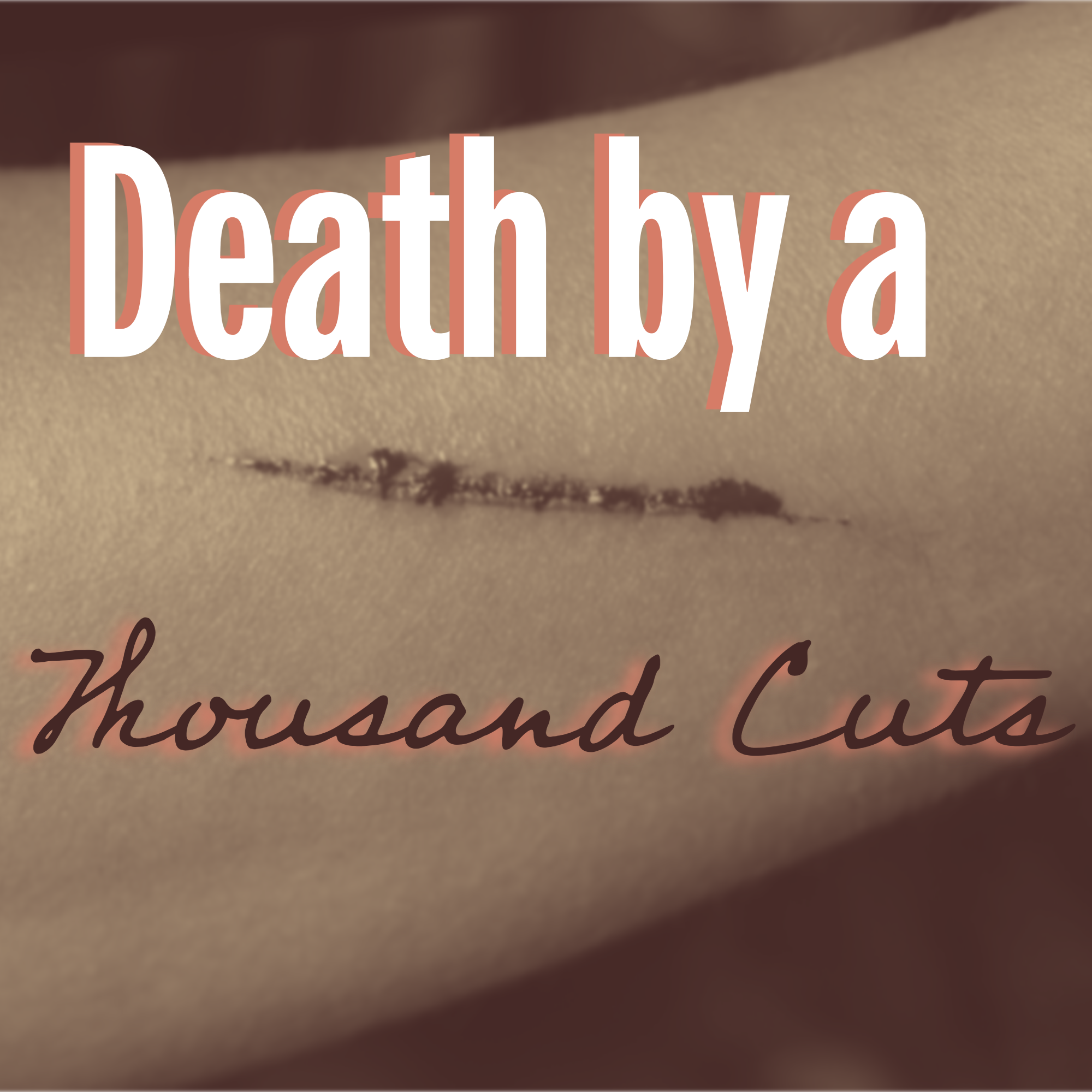In this episode, Lauren and Bree welcome back therapist Suzanne Fortnum of Suzanne Fortnum Consulting for an insightful conversation on navigating the emotional complexities of toxic relationships. Together, they explore the difficult realization that a partner may not be the person you initially fell in love with, and how this shift can impact your emotional well-being. The discussion delves deeper into the role of narcissism and its influence on processing the end of a relationship and finding closure.
View Full Transcript
Episode Transcript
[00:00:14] Bree: Welcome back to Spill the Tea.
[00:00:16] Lauren: HSV with Lauren and Bree.
This episode is proudly brought to you by the law firm Ryan and Rouse. If you or a loved one have been injured or need legal help for changing family circumstances, contact the personal injury and family law attorneys at Ryan and rouse today at 256-801-1000, or visit them online at www.alabamalaw.com. when your future is on the line, don't go at it alone.
We're back with Suzanne with Suzanne Fortnum Consulting. And we have a very special episode for us today.
[00:00:59] Bree: We do. Suzanne, what is our episode going to be about today?
[00:01:02] Suzanne: So today we're going to be talking about grieving the relationship that you thought you had.
[00:01:08] Bree: Oh, perfect.
[00:01:09] Lauren: That's so good.
Because I think that's one of the hardest things.
[00:01:13] Suzanne: It definitely is. And before we get started, I just wanted to make a statement that all of the information that I'm sharing on this podcast is for educational and informational purposes. If you are struggling with mental health, you should seek out the services of a licensed professional counselor or other psychotherapist in your state.
[00:01:36] Lauren: Yes.
[00:01:37] Bree: Sounds great.
I think we're all going to be able to relate to this episode in some way or another. So let's get into it.
[00:01:45] Suzanne: All right, so today, like I said, we're going to talk about grieving the relationship that you thought you you had versus the relationship that in reality you had.
So when women find themselves in the space, they're grieving not just the end of a relationship, but the illusion or hope of what you believed that relationship was. And this kind of grief can feel very confusing, painful, and isolating.
[00:02:17] Bree: Yeah, absolutely.
[00:02:19] Lauren: It absolutely can. I know I especially whenever they show you two different people, because in the beginning you think like, this is great, and you marry this person and you think like, okay, my life's going to be amazing. And then when you find out that they were hiding their true selves or they change completely. And for whatever reason, but I feel like most of the time it's that they were hiding their true self.
And when you find that out, you're like, what?
[00:02:50] Bree: Right. The person that you thought you knew is no longer there. It's someone that you have to get to know. And then typically that just does not end well.
[00:02:58] Suzanne: Well. And a lot of times, I think when you get to the point that you realize you don't know this person, you're looking for the person that you started dating at the beginning of the relationship, and that's the person you're Actually grieving, not the person that you're in the relationship with.
[00:03:15] Bree: Absolutely.
[00:03:16] Lauren: Yeah, I know. I just wanted so bad for it to be that person I fell in love with. And it's hard to differentiate that. The person who you fell in love with versus the person they actually are and ended up showing you when they showed their true colors. Because you want.
You love them, so you want to believe in the good in them. But then it's like, but where is that good? Like, good people don't cheat with 20 plus people. Like, or at all. But with, you know, that many partners, like, why hurt? If you truly love somebody, however it ends, you don't like, hurt your person on purpose.
[00:03:51] Suzanne: Right.
[00:03:52] Lauren: So how do you deal with that? Like, how do you separate those two things?
[00:03:58] Suzanne: So that's a really good question.
And those two things can be really challenging to separate.
Part of that separation is understanding that you're not just losing your partner, but you're also losing the dreams and ideals and hopes that you had for the relationship. This includes the future you pictured and the version of the person that you believed in.
[00:04:34] Bree: You fall in love with somebody who you think ideally you know is your person. You know, you get married and again, you don't expect to get divorced whenever you get married.
[00:04:41] Lauren: And.
[00:04:42] Bree: But it happens and it's like, you're with them, everything is going great. It's exactly how you think it's supposed to be. And then they turned into somebody that is the polar opposite of what they have shown you. And in my case, it was like, okay, but they have the potential because I've already seen how they can be. So I know they have that potential to continue through and be that person. So maybe I can help fix them. But you can hot fix somebody who is not, who doesn't want to fix it themselves.
[00:05:10] Suzanne: And that's a challenge that a lot of women face in these situations. This like, kind of ties into the why women stay in the toxic relationships. And that's like this idea of, we believe that we can fix the person.
[00:05:22] Lauren: Yeah. Why.
[00:05:24] Bree: Why do we think that way?
[00:05:27] Lauren: Why do women.
[00:05:28] Bree: What is wrong with us?
[00:05:31] Lauren: I just don't.
I don't understand.
I.
It's like we just want that so bad. And I don't know if it's because we are like more. I don't know, because women cheat too. But for me, like, when I said those vows, I meant them, and I just wanted it so bad. Like, I wanted that man who I felt like I was the most beautiful person in this world, who put me on what I thought was like a pedestal and who I thought loved me more than anybody in the world. And then to find out that he was having affairs our entire relationship, he was cheating on. And we were. We got engaged so fast. And so, like, why did you propose to me if you were cheating on me the whole time?
[00:06:19] Suzanne: Right.
[00:06:20] Lauren: And I think that that's, like, hard to deal with because then it's like, well, and that's. I think, when women start blaming on themselves, too.
[00:06:28] Suzanne: Yeah, absolutely. There is such a deep sense of shame and associated with that. And it's this feeling of, I am not enough.
Why can't I fix this? Why can't I help support this person in making the changes that they need to get back to the person that I originally fell in love with?
[00:06:53] Lauren: And so were they ever that person?
[00:06:54] Suzanne: Generally not generally.
So last time we talked about the beginning of relationships and how emotions are heightened and we are putting our best self forward. And I think everybody does a little bit of that to a certain extent.
But in these kinds of situations, when the relationship becomes toxic, a lot of times the unfaithful person was putting this facade of themselves forward that was so far beyond who they actually were. And then over time, that facade got chipped away at.
And it. It erodes so slowly over time that we then find ourselves in a relationship where we're like, how did we get here? Who is this person that I am with?
[00:07:53] Bree: And I feel like this happens more so. And I am not hating on men. I'm not bashing them, But I feel like it happens more so with men than it does women, because women are more emotional creatures. I feel like men are. So it's so much easier for them to just turn their brain off, turn their emotions off. Whereas women, it's like it hits us out of nowhere and we're just completely devastated. Whereas they're not.
[00:08:17] Lauren: Yeah, it really feels like they don't care.
[00:08:19] Bree: Yeah.
[00:08:20] Suzanne: Yeah. Well, is that normal?
Some of that is like narcissism.
It can be.
[00:08:26] Lauren: And lack of empathy.
[00:08:29] Suzanne: Some of it can just be shutting down the emotional state depending on their attachment style. So someone with, like, avoidant attachment will shut down all of their feelings because it makes the devaluation of the person that they're with that much easier.
[00:08:51] Bree: And I have a question. I know this episode is not based on avoidance, but I do have a question regarding that attachment style. So with an avoidant, it obviously stems from, like, trauma in their childhood and things like that. But they all. I keep hearing that they always come back Is that accurate?
[00:09:09] Suzanne: I would say that more often than not, they come back.
[00:09:16] Bree: Why?
[00:09:18] Suzanne: Well, because at some point, those emotions come back online. Right. Whether.
So let's back up for a minute. When we think about attachment style. Attachment style forms as a result of relationships and bonding with early caregivers.
So that avoidance style is really deeply ingrained and plays out in most relationships.
And in this case, avoidant attachment is a form of insecure attachment.
And so what is at the root of that is fear of being abandoned and rejected.
[00:10:03] Bree: Yet they're the ones who abandon and reject.
[00:10:05] Suzanne: Well, that's why they abandon and reject, because they are afraid of being abandoned and rejected.
And so as a result, they do the I'm gonna leave you before you can leave me. And when they step away or discard the relationship. And it's generally with, like, avoidant attachment that you tend to see ghosting.
[00:10:34] Bree: Right.
[00:10:36] Suzanne: There is like a deval.
[00:10:38] Bree: Go ahead.
[00:10:39] Suzanne: There is like, a devaluation and a discard of the person that they're in the relationship with. They make it seem really easy for them to just be able to walk away.
[00:10:50] Bree: So does someone with an avoidant attachment style, do they grieve the possibility what the future could have been?
[00:10:58] Suzanne: Not in the traditional sense. At least not right away. So, coming full circle, to answer your question, at some point, like I said, those feelings come back online, and it could be that they don't have another partner or they're feeling nostalgic.
Whatever the reason, they start thinking about their relationship with you again.
And as a result, they.
They may re. Reach out. They may text you. They may start commenting on your social media as a grab for trying to get your attention.
[00:11:38] Bree: Lovely. Okay. I just didn't know if they would. If they ever grieved, you know, the possibility of a good future with someone or not.
I've done a lot of, you know, research and things like that on this attachment style, since I have come to know what it is and was involved with someone who had it. So I just didn't know if that played into. If they could possibly grieve the future of what could have been.
[00:12:02] Suzanne: They can. And that's where one of the ways in which avoidant attachment differs from narcissism.
[00:12:08] Lauren: Yeah, that's what I was gonna say. Narcissists don't. No, they sure don't. They're like, oh, I destroyed that person's life. Good, let me find the next one to destroy.
[00:12:16] Suzanne: Right.
[00:12:17] Bree: They say avoidance when.
[00:12:20] Suzanne: When avoidance discard a relationship, they're not necessarily looking for more supply it's usually. Or next, like their next supply, as is the case with narcissists.
[00:12:37] Bree: Right.
[00:12:38] Lauren: I think that's hard too, is like when they're not grieving. Like you're grieving what could have been because you truly love this person and you're not a narcissist, you're not an avoidant. But whenever they. They are, and you're like, how can you have told me you love me but yet you don't grieve losing me or you. Or you did something to lose me in the first place.
[00:13:00] Suzanne: Right.
[00:13:01] Lauren: But like, that's what I don't understand with him, with Dick telling me that he still loved me as later as January 2nd. And he'd probably to this day still be telling me that had I not found out about the other women. Yeah.
And I'm like, why can. How. How easy it is for them to just lie and.
And not. But they don't grieve anything. Like they don't miss us. Like we miss them. And that's really hard too, is like, why.
And that's when we get ourselves doubt and. And, you know, think we're not worthy or whatever the case is is because, like, why am I not worthy enough to be missed? Why am I not worthy enough to be, you know, grieved? Like, I'm grieving this relationship.
[00:13:46] Suzanne: Right, Right. It sends us into our shame spiral.
[00:13:49] Bree: I'm sure we have, you know, many listeners who have been in these same situations. How would you advise that they handle or process that? Whenever they're grieving the future, but their ex partner is not.
[00:14:03] Suzanne: So this is one of the hardest things to do.
But I generally recommend no contact first a period of time.
And coming like full circle to your question of, like, do avoidance come back. It is often in that no contact period where they are cut off. You are not reaching out to them.
They know, or at least they feel like you are not missing them.
Their emotions start to come back online.
[00:14:38] Lauren: How long do you recommend doing no contact in the beginning?
[00:14:42] Suzanne: A minimum of 30 days.
But I always want to work with the person where they're at. So sometimes people are like, I can't commit to 30 days. So sometimes I'll just say, can we do it till our next session?
[00:14:54] Lauren: Yeah. And just like baby steps to carry it out.
[00:14:58] Suzanne: Right.
[00:14:59] Lauren: Because it was. I mean, it was hard for me in knowing that he was with another woman too, because he went straight to someone else to not have, you know, contact. And I think we were also trying to sign paperwork, so I had to Contact him to a degree. But even now, like, I felt like he was using not paying me as a way to, like, force me to contact him. And that was, like, a way of control or something for him. So now it's like, okay, well, I'm done. Like, I'm not. I'll fit. I'll. I'll figure it out. We'll go a different route. Like, I'm not gonna message you. So I think I'm currently on. I mean, I've definitely gone 30 days, but I think I'm on, like, an even longer stint at this point of not talking, because he's not. He doesn't respond anyway.
[00:15:47] Bree: I'm on month seven with only one text message being sent.
[00:15:50] Lauren: Good job.
[00:15:52] Suzanne: Well, and there are some situations where no contact, like, no contact. No contact completely is not feasible. So the situation you're describing, where he owes you money or you have kids.
I was gonna say kids are one of the biggest factors why people can't go. No contact. But then it. Then it's looking at like, okay, how can we limit contact? How do we keep contact between. Just to the issue at hand? Like, if it's a financial issue, then contact is only around this. We're not going to get into conversations about, like, I miss you, or I've been thinking about you, or, it would be really nice to see you, or I miss that beautiful smile, whatever it is.
[00:16:42] Lauren: Yeah. Do a lot of people that you. That you talk to with children specifically have issues, like, with that person? Probably, I would think more just because the guy, like, they have to talk to him. Like, you have to talk to the father to be able to, like, trade kids and everything else a lot of times. And it's really hard to not do that or use or, you know, use the kids as bargaining chips.
[00:17:03] Suzanne: Yes.
In that.
In those cases, I recommend getting a really good attorney, especially if you are still figuring out the custody piece.
And if it's really feeling too much, like, too much, and you can't work it out with them, they're being really difficult. Have the conversation through attorneys.
[00:17:28] Lauren: Yes. And here on Spill the Tea, we recommend Ryan and Rouse LLC here in Huntsville, Alabama, all day, every day.
He was great.
[00:17:39] Bree: Okay. So going no contact is one of the most helpful things. What else would you suggest for somebody who's trying to get through that process of grieving? What could have been?
[00:17:47] Suzanne: So I think focusing on you and taking care of yourself, so seeking out support from other people, because, as I mentioned, this type of grief can feel really lonely and isolating.
So Having a good friend group in your area, maybe seeing if there is a support group or an online group where you can just talk to someone about the emotions that you are experiencing. I think also reality check, checking exercises, so trying to zoom out of what you believed the relationship was so that you can see the relationship more, more fully without idealizing.
[00:18:42] Bree: Right.
[00:18:43] Suzanne: This person for who you believed that he was.
[00:18:48] Lauren: Yeah. Why, why do you go back? Like, there's got to be some psychology behind it about why do we end up after the fact? Like, they've hurt us, we're hurting so bad, but then we're like, we miss them because we're idealizing it. Like, why do we forget. It's almost like we forget the bad stuff they did because you get that.
[00:19:04] Bree: Boost of oxygen, oxytocin, and.
[00:19:06] Suzanne: Right.
[00:19:07] Bree: It's a cycle.
[00:19:08] Lauren: Yeah, but like, how do you stop that?
[00:19:11] Bree: No contact.
[00:19:12] Suzanne: No contact.
[00:19:13] Bree: Yeah.
[00:19:15] Lauren: But even then, like, even no contact, like, you know, whenever I was. Had no contact with him for, you know, several weeks, I guess we went about 30 days before he finally signed the papers and I got a hold of him and to him to actually respond. And at that point, him and her had split. And that's probably why he reached out to me.
But even in that month of February, knowing he had the one affair, I was like, do I.
Like, I just miss him so much and I miss everything that we had and we had our life and what am I supposed to do now? And like, do I. Should I forgive him? Should I just. Should. Should I take him back? Like, what do we do? What am I doing? And.
But he was awful. There were so many times he was awful to me. So the fact that I would even consider taking him back is insane.
[00:20:07] Suzanne: Well, and that's exactly what we're talking about. We're talking about grief. Right. And so grief isn't always logical.
One of the stages of grief is bargaining.
And that's kind of what it sounds like you were doing, where you were like, okay, well, we had this and we had these good times, and this is what our life looked like when we were happy.
Maybe we can have that again. Maybe if I just do X, Y and Z and he agrees to do A, B and C, then we can have what we had before.
[00:20:49] Lauren: Yeah, but then it's. It's broke. And once that trust is broke, you really can't go back.
[00:20:53] Bree: No.
[00:20:54] Suzanne: Well, and we're not even creating a bargain with them. We're creating that bargain with ourselves.
[00:20:59] Lauren: Yeah, that's true. And I know another. So, like, the Grieving process steps. Another one's obviously anger.
[00:21:06] Suzanne: Mm.
[00:21:07] Lauren: And can. Like, I feel like I'm in. Yeah. I'm super angry. Bree's pointing at me. It's facts, and I. But I still feel like. That's what I was gonna say. I feel like I'm in two stages at this point. I'm still in the anger stage, but I've also accepted, like, he ain't coming back.
[00:21:24] Bree: He ain't getting no better.
[00:21:25] Lauren: And he. Well, no, he's not coming back. And, I mean, pretty sure he's just mad now at this point, but he's not even. He's not coming back, and I don't want him back. So I've accepted that, but I'm still pissed.
So that, like, how long does that stage last?
[00:21:42] Suzanne: It varies. It is so individual. But with anger, we have to recognize that that's protective. Right.
And it can also be very empowering.
[00:21:56] Lauren: True.
[00:21:57] Suzanne: Because there's a lot of energy that comes from anger.
Anger can also be destructive. So we have a choice that we can make there. So maybe we start a podcast and pour all that energy that's right into it. Here we are. As opposed to being destructive and going and, like, slashing his tires.
[00:22:15] Lauren: If only I could. But I don't want to go to jail, so I will not.
Do I dream about it? Yes. But will I actually do it? No. Now, if somebody listening happens to know what he drives and they do it for me, that's not my fault.
[00:22:30] Bree: We're not encouraging this type of behavior.
We are not encouraging that.
[00:22:37] Suzanne: That behavior is a little bit toxic.
[00:22:39] Bree: I'm a little further in my journey than she is a few months.
[00:22:43] Suzanne: And by a little bit toxic, I mean, that's pretty. It is.
[00:22:47] Lauren: I know. But you know what you play, you know, play stupid games, win stupid prizes. He played a stupid game. He played with my heart.
[00:22:56] Bree: He'll get a stupid prize.
[00:22:57] Lauren: I just. He needs a stupid prize.
[00:22:59] Bree: It's coming.
[00:23:01] Lauren: If only.
So, yeah. Like, I think the hardest part, too, is because when you grieve a. Like, someone who's passed, they're not here anymore. Yeah.
And then when you're grieving somebody, like, I know for you, you see number three all the time.
[00:23:16] Bree: I do.
[00:23:16] Lauren: We saw him today.
[00:23:17] Bree: Yeah. We live just a few miles apart, and it's like driving down the road, and it's just at random times, I'll see him. I'll see him with his kids, and it's like, my God, why do I constantly see him when I'm out and about? Because it just Breengs it right back. Not all. All of it, but it Breengs back that feeling of like, I'm supposed to.
[00:23:38] Lauren: Be in that car.
[00:23:38] Bree: Yeah.
[00:23:39] Lauren: And that's why you need to move near me.
[00:23:40] Bree: I was in that car. Hell, I drove that car.
[00:23:42] Lauren: Right. You know, she made me be nice today.
I wanted to flip them off.
[00:23:47] Bree: She said, the children were in the car.
[00:23:49] Lauren: The children were in the car. Fine. I mean, I'm not gonna do it to the kids. It wouldn't be at the kids. I could, like, point at the dad and be like, it would probably flip you. Back off. That'd be funny, actually.
That made me laugh. But, yeah. So, I mean, you have to see him and, you know, like, I mean, I pass his work all the time, and I.
I flip off the building when I drive past it. That makes me feel better.
[00:24:13] Suzanne: Well, but that's a way of channeling anger in a way that is not destructive.
[00:24:18] Lauren: Yeah. Yeah. And that's what's hard, because they were so destructive to us.
[00:24:23] Suzanne: Right.
[00:24:25] Lauren: Like, completely. Both of us. And I'm sure all of our listeners, or a lot of our listeners have had their lives completely flipped upside down.
[00:24:33] Bree: Yeah.
[00:24:34] Lauren: Because of a relationship or who. Like a partner. That completely destroyed them. And, like, they didn't see it coming. Exactly. And it just completely destroyed your life, the life you thought you had. And then you gotta. You gotta start back over and build up. And, I mean, I will say that my life is a lot more positive and a lot more different now than it was even, you know, back in October. I have way more friends and more friend groups. And, you know, all this has actually brought some amazing people into my life. So there's definitely some positives to see. It's just hard to still let go of, like, any anger that I have, just knowing that he's doing this to other women.
[00:25:15] Suzanne: Right.
And you can be angry, but you can also be resilient at the same time. Right. There's room for both.
And whatever the emotion in it is that you're experiencing. Anger, depression, overwhelm, anxiety, all of them at the same time.
[00:25:36] Lauren: Yeah.
[00:25:37] Suzanne: It's important that you acknowledge that they're there, because that is part of the healing, and that helps to build further resiliency as well.
[00:25:46] Lauren: And. And I will say for, like, just a plug again, for everybody to just go to therapy, because had I not been seeing you for the past eight years when this stuff hit and went down, I. Even before everything went down, I had been telling you, like, something's like, my emotions are everywhere. Like, I Am so anxious. I'm. I'm going in down a depression spirit spiral because he was treating me so poorly that I had told you, like, I think I need something, like, to take. Because this is just, like, I don't like how I'm feeling and how it's making my behavior be. And so even before everything happened, we'd already talked about that. And I don't think I would have recognized the depression or the anxiety if I hadn't been in therapy as long as I had been.
So I think that that's another thing that people just don't realize, like, oh, I don't need therapy. You know, I didn't have a traumatic childhood. Well, yeah, neither did I.
But you need to have something to be able to. Like, it gives you the tools to recognize when you're going through something and recognize, like, hey, this isn't me, and I need something, and I need help.
[00:26:54] Bree: Yeah.
[00:26:55] Suzanne: Well. And I think it's really important for us to just normalize that. Everybody needs somebody to talk to, and that is a really lovely gift that you can give yourself.
Regardless of what your childhood look like, you might be in what you feel like is the best relationship. You may be happy with your family. You. You may be happy just in your life in your friend group. But it's important to have that objective sounding board.
[00:27:29] Lauren: Yes.
[00:27:29] Bree: Right.
[00:27:31] Lauren: Because your friends are always. I mean, we laugh all the time because Bree. Breee will send me all these memes, and she's just, you know, the friend that's like, oh, I'm gonna fight you. Like, I mean, like, I'm that friend. Like, you need me to go get somebody, I'm gonna go get them. Like, what are we doing? Like, you need me to drive past our house playing a song. I'll do it. No, like, you know, because that's, like, I am so loyal and so, like, close to my friends that I'm like, I will move mountains for you. What do we need to do?
[00:27:56] Bree: Slash our tires?
[00:27:58] Lauren: Just kidding.
[00:27:59] Suzanne: Not everybody has that.
[00:28:00] Lauren: Right. Yeah. Right. And so, like. And. But even then, like, I may not be the best person to tell Bree, like, advice. Because my advice is going to be, let's go do this crazy toxic thing.
[00:28:13] Bree: I'm like, no, let's hone it back in.
[00:28:15] Lauren: And I'm like, let's go.
[00:28:16] Bree: Yeah.
[00:28:16] Lauren: No, I'm like, we want to. Let's get a billboard. Like, that's where my mind goes. I'm going to get a billboard.
[00:28:21] Suzanne: Can't be unbiased. Like, so even for myself. I'm a therapist.
I have friends who are therapists.
They're not my therapists.
[00:28:31] Lauren: Right.
[00:28:32] Suzanne: I have a really good friend get together at least once a month just because of life and kids and stuff like that. I would like it to be more. But, you know, sometimes we'll talk about things and we'll say to each other, I can't give you objective advice on this because I'm biased.
[00:28:55] Lauren: Right. And that's just it. Like, with. With friend groups, you can't. You can't do that. Which is why therapy is important, because then you have someone who isn't that person being like, hey, I. Because I love you so much, I can't stand seeing this, so I'm going to be mean for you.
[00:29:12] Suzanne: Coming from a place of love.
[00:29:14] Lauren: Oh, yeah. Always. Always. Like, anyone who messes with my friends, I'm like, I'm sorry, my friend is an angel and is perfection. And I will 100% make you feel like you're 2ft tall. That's my favorite thing to do. See, that's the thing. You don't even have to be physical with them. You just need to make them feel small. And men hate feeling small, and I'm really good at doing it, so.
[00:29:36] Bree: Well, there's a new thing I heard that you can, you know, men always play off of. Oh, well, are you. Are you being sensitive? You know, because you're on your period, so now it's ask men if they're being hormonal.
And it just really gets under their skin.
[00:29:50] Suzanne: I love that.
[00:29:51] Bree: It's like, oh, are you being hormonal? I love it.
[00:29:54] Lauren: Oh, yeah. I can't wait to use it. I mean, I'm never gonna date again, but.
But I will. But one day, maybe.
Maybe I'll use it one day.
Yeah, it's. It's rough out there.
So.
[00:30:10] Bree: So no contact and then taking care of yourself, finding, you know, support groups and things like that. Is there anything else that you would recommend for someone going through this?
[00:30:18] Suzanne: Well, we talked about reality check. Yes, Reality check as well. And then I think just naming the loss. Right?
Not the person, but the loss. So the person became a person that you didn't know. It's not the person that you thought you knew when you started dating. But the loss then becomes the version of the relationship that you saw in your future.
[00:30:45] Lauren: Yeah, Dick.
[00:30:46] Suzanne: Right. And so with naming the loss, it is a way of separating the person from the relationship.
[00:30:55] Lauren: And I think that's actually has actually helped because, like, it's to the point now Whenever I talk about him, I almost always just say dick.
Like, that's not. Like, I don't even say his actual name anymore whenever I talk to other people about him, because it's just. It's been good separating it, because that's who he is and, like, truly was, and I just didn't realize it.
[00:31:17] Suzanne: Well, it gives you some distance from him, the person.
[00:31:22] Lauren: Yeah, right.
[00:31:23] Suzanne: Versus the relationship, and the version of the relationship that you are actively grieving.
[00:31:31] Bree: So I think a lot of people, just based on, you know, conversations that I've heard and things, you know, that I've seen written online, a lot of people ask, well, how long does it take to grieve this sort of relationship?
And obviously, I think it depends on, you know, how long you've been together, you know, if kids were involved and things of that nature.
Is there, like, a timeline for. I don't want to say everyone, but a.
[00:31:54] Lauren: Average.
[00:31:55] Bree: Yeah, an average timeline of what it takes to go through that process.
[00:31:59] Suzanne: I wish I could give you one, but there's nothing.
And it's so individual because of all of the factors that you listed, like the length of the relationship, if there are kids involved in the relationship. Also, like, are you still actively in contact with the person? A lot of times in these relationships, you get pulled back into a cycle as you try to end the relationship. So how many times have you been pulled back in through that cycle and tried to untangle yourself again?
[00:32:32] Lauren: Yeah. And even if you're not, like, in contact, like, are they still. They're causing you somehow, whether it's financially or whatever the case is, like, then you can't fully move on because it's like, you can't block them, you can't get rid of them, because they owe you something.
[00:32:46] Bree: Well, and once you're stuck in that cycle, from my understanding, it creates a trauma bond. And so, like, every time you break up or end things, you know, for me, like, it would make me anxious, because before I was. I was anxious. Attachment. Like, I recognize that, and I know that. Am I that now? No, because I have healed from it. Thank God. I have healed from that part. And so, you know, when you get back together, you start creating that bond again, and, you know, oxytocin begins to release, and you think, okay, everything's great, and only for it to happen again. And it just continually builds that trauma bond stronger and stronger each time.
[00:33:20] Suzanne: Right.
And it's in that trauma bond that we often see the breadcrumbing that I talked about last time I was on the Episode where they throw you a little bit, Right? And so that's like, it gives you the dopamine hit, the oxytocin gets going, and you start to think, like, maybe things really can be different.
I am seeing change. Maybe this change is sustainable.
And then that cycle tends to. More often than not, it tends to repeat itself.
[00:33:55] Lauren: Yeah, it's hard because it's. I think there's a hard thing to get past with, like, an exception versus the rule situation. Because, like, you'll happen to see that one exception on social media. And then even then, like, is it true? Like, you know, oh, he cheated on me, but now he hasn't. He's been faithful, like, for the past 20 years. Like, it really, like, has he. Like, we don't. We're never gonna really know. And their partner may not even know. But it's. Sometimes you see that you're like, well, why can't I also be the exception? Like, you want to be the exception to those things.
[00:34:27] Suzanne: Everybody wants to be the exception.
[00:34:29] Lauren: Yeah.
[00:34:29] Bree: Yeah.
[00:34:30] Lauren: But we're not.
We're not.
And that sucks. But it is what it is.
[00:34:36] Bree: Insert dark humor.
[00:34:37] Lauren: Insert darkness.
I live in it. I thrive in it.
I thrive in the dark humor. Yeah, it's. It's hard grieving a relationship. And I heard a horrible statistic that it was like, it takes half the time you were together to get over it. And I'm like, no, dear God, please don't say I'm gonna be doing this for years.
[00:34:55] Suzanne: I was actually gonna say when, you know, when you asked me about length of time to get over it, I was gonna say, you're gonna hear all these things about it takes, like, half the length of time. There is no length of time of time. That is a common misconception.
[00:35:10] Lauren: So I think that's good for people to know that, like, because that's what I had always been told. And what was, like, drilled into my head was like, it takes half the length of time that you were together to get fully over them. And I'm just like, well, that can't be true, because I've gotten over people in, like, a day. Right.
Well.
[00:35:27] Bree: And it's very confusing for someone in the beginning because you see all these videos, TikTok, Instagram, you know, and you start doing your own research, and everybody has a different answer, and they all seem to have a timeline. Timeline of, oh, this should happen within so many days or so many weeks or months, and it gets very confusing.
And like you said, it's different for everybody. And there's no set timeline. There's no average for it. You process it and grieve it in the way that is best for you.
[00:35:57] Suzanne: Absolutely. And when we move through the stages of grief, and just for anybody who is unfamiliar with the stages of grief, they are denial, anger, bargaining, depression, and acceptance.
But that process isn't linear. So, Lauren, you were describing earlier bargaining, Right.
But that's. That's the third stage of grief. But you can be in bargaining one day and go back to anger, which is the second stage of grief. And then you might get to a place where you've had like a really good therapy session or a great girls night out and be like, you know what? Maybe this was for the best. And I see a different future for myself. And you hit that. Hit a moment of like, acceptance.
And then he reaches out and maybe bargaining begins again.
And then he pulls back and you.
[00:37:03] Lauren: Feel depressed or you see him posted on, are we dating the same guy again?
[00:37:07] Bree: 40,000 times.
[00:37:08] Lauren: And so you're just like, cool.
And then like, these women are on there being like, yeah, he was basically living with me in March. And I'm like, oh, really? Because he was asking Bree out on a date again. Again, yeah.
So.
And actually set up the date and, you know, someone else may have shown up. Who knows?
We talked about the stages of grief and how you can bounce around all the stages and. Or even be in multiple stages at once. And that it's completely normal to do that. And really, at the end of the day, it just. It takes time.
[00:37:43] Suzanne: It does.
Because you are grieving from the relationship that you thought you had, which is valid and real for you.
Even if that person put on a facade, that was an illusion, what you experienced, what you perceived the relationship to be was real.
[00:38:05] Lauren: I think that that's a good thing to try to tell yourself over and over again when you are missing them is being like, no, that wasn't what I'm missing. Wasn't real.
[00:38:13] Suzanne: Absolutely.
And like, in addressing that shame piece, reminding yourself that you're not grieving because you were foolish, you were grieving because you were courageous enough to be vulnerable in the relationship and believe in that person and believe that that person loved.
[00:38:34] Lauren: You, which is what you're supposed to believe.
[00:38:36] Bree: Right.
We're not crazy for believing that.
[00:38:39] Lauren: Right. You're like, when you're in a committed relationship and you love somebody, that's how you're supposed to be.
[00:38:44] Bree: Yeah.
[00:38:45] Lauren: So just because they weren't and couldn't be, it's not a reflection on us.
[00:38:51] Bree: Or you absolutely I agree.
[00:38:55] Lauren: All right. Well, thank you, Suzanne, for coming on again and sharing with everybody how to grieve a relationship and what you thought it was.
And I think that's the key, is remembering that it's not what you thought it was.
[00:39:08] Suzanne: Absolutely. And thank you guys for having me. I'm looking forward to joining you again soon.
[00:39:14] Lauren: Yes. Until next time.
[00:39:16] Bree: See you next week.







